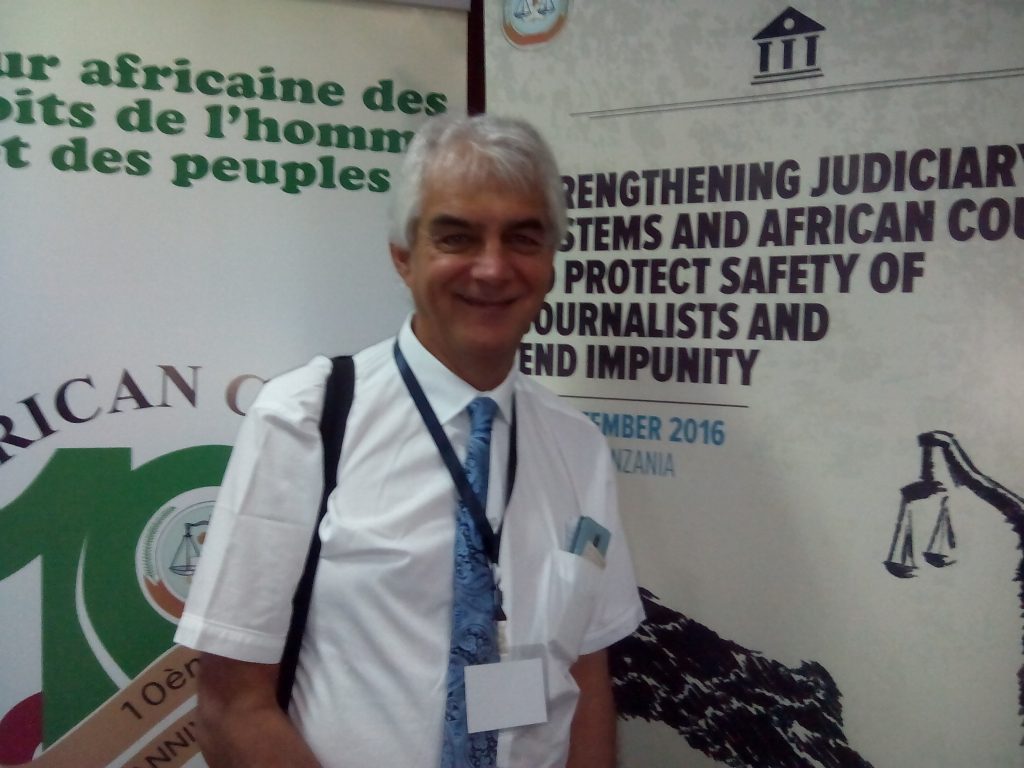UNESCO Challenges Uganda On Safety Of Journalists

United Nations Educational, Scientific and Cultural Organization (UNESCO) has challenged Uganda to take deliberate efforts to end violence against journalists.
The director for freedom of expression and media development Mr.Guy Berger was speaking to KFM in relation to the numerous cases of violence by the police against Uganda’s journalists ahead of the International Day to end Impunity for Crimes Against Journalists.
Over the past 4 years, the United Nations has passed 8 resolutions about the safety of journalists, including the one which proclaimed November 2nd International Day to end Impunity for Crimes Against Journalists.
Mr. Berger says that sadly in some cases government has turned a blind eye on violation of journalists’ rights by security personnel. The most recent is the unresolved case of Andrew Lwanga, a Television Journalist who was beaten up and his spinal cord damaged by a the former DPC Old Kampala Police Station Joram Mwesigye in January 2015, while covering a peaceful demonstration by a group of unemployed youth along Namirembe Road in Kampala.
He adds that access to information is a key factor for achievement of Sustainable Development Goals (SDG) that were agreed upon by all UN member countries in 2015 and must be promoted by all government organs.
“One goal says Peace, Justice Strong institutions and a target within that is there must be public access to information and fundamental freedoms. Of course you can only have public access to information if journalists are free to do their work”, Mr. Berger said in an interview with KFM.
Mr. Berger adds that it is for this reason that the UN has resolved to use it as a measure of public access to information with regard to laws on information and safety of journalists.
He also challenges the government of Uganda to ensure that there is punishment for those who attack, maim or kill journalists.
“Why its import is because when society sees there is no justice for journalists there realize there is no rule of law and that they themselves are not being protected. So there is a lot of work that governments must do to ensure journalists are free to do their work,” said Mr. Berger.
He says failure to protect journalists impacts negatively on image of the country internationally so it’s in the interest of these governments to protect journalists while they execute their duties. “If journalists are not free to do their work, the people will not have information to decide what to do with their lives and for good information to flow you need a free media”, explains Mr. Berger.
Mr. Berger says many activities have been organized across the world to run over the next 6 weeks in the build up to the International Day to end Impunity for Crimes Against Journalists slated for 2 November 2016.
He was speaking on the sidelines of a seminar organised by UNESCO and the African Court on Human and Peoples’ Rights on Strengthening Judicail Systems and African Courts to protect safety of journalists and end impunity, in Arusha, Tanzania on September 10th.
Story By Catherine Ageno








